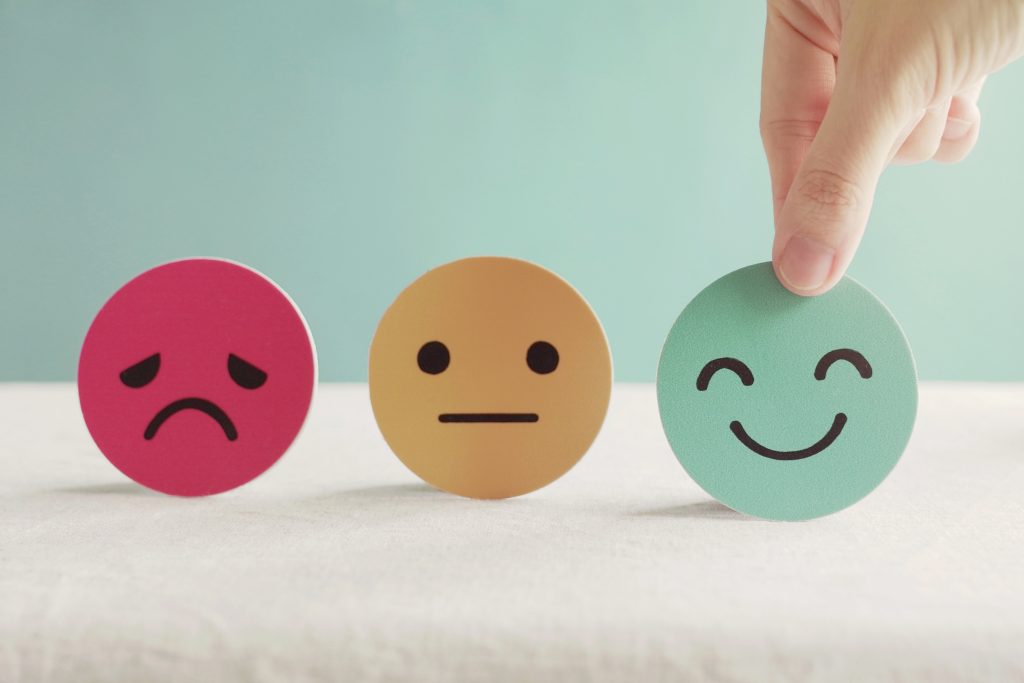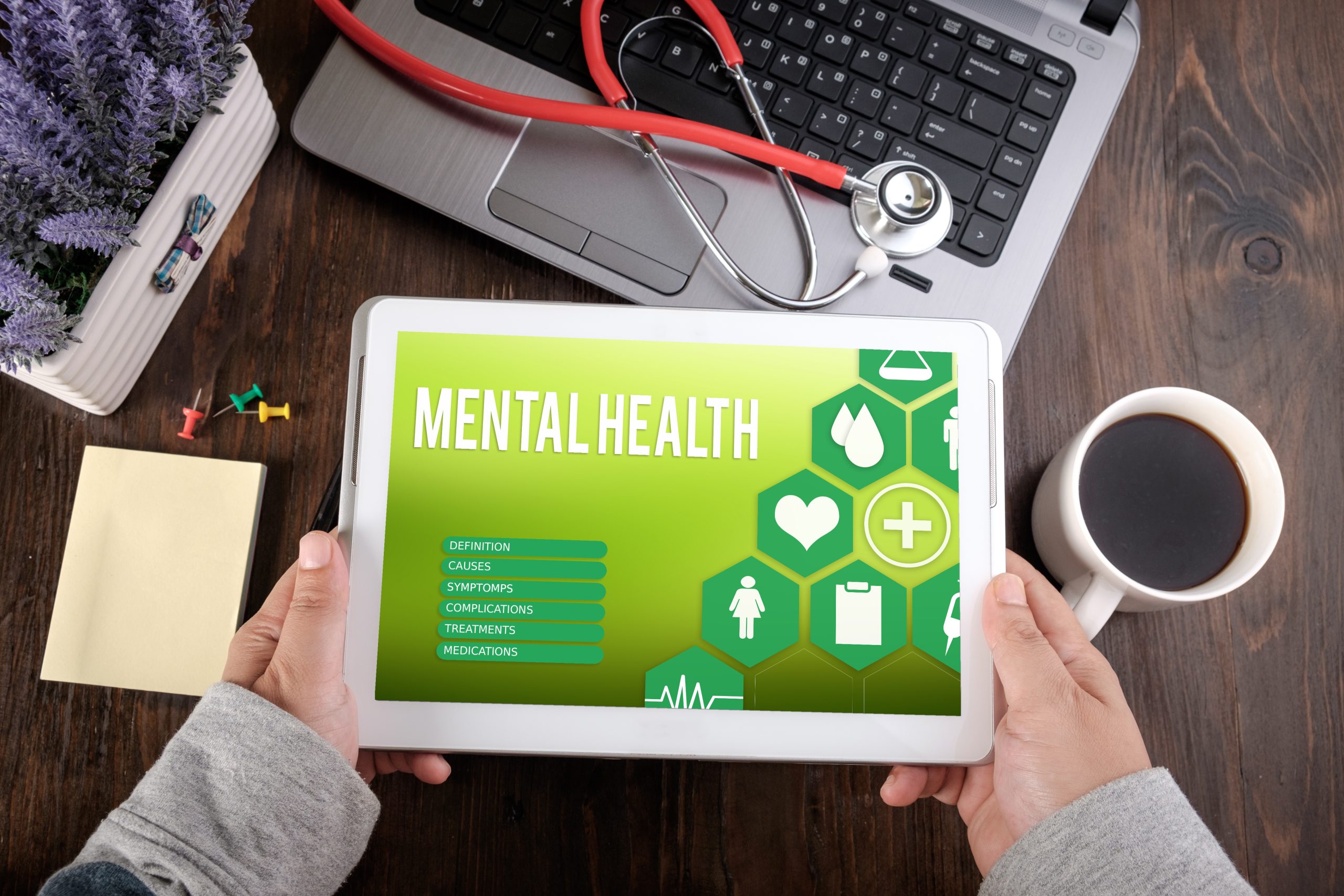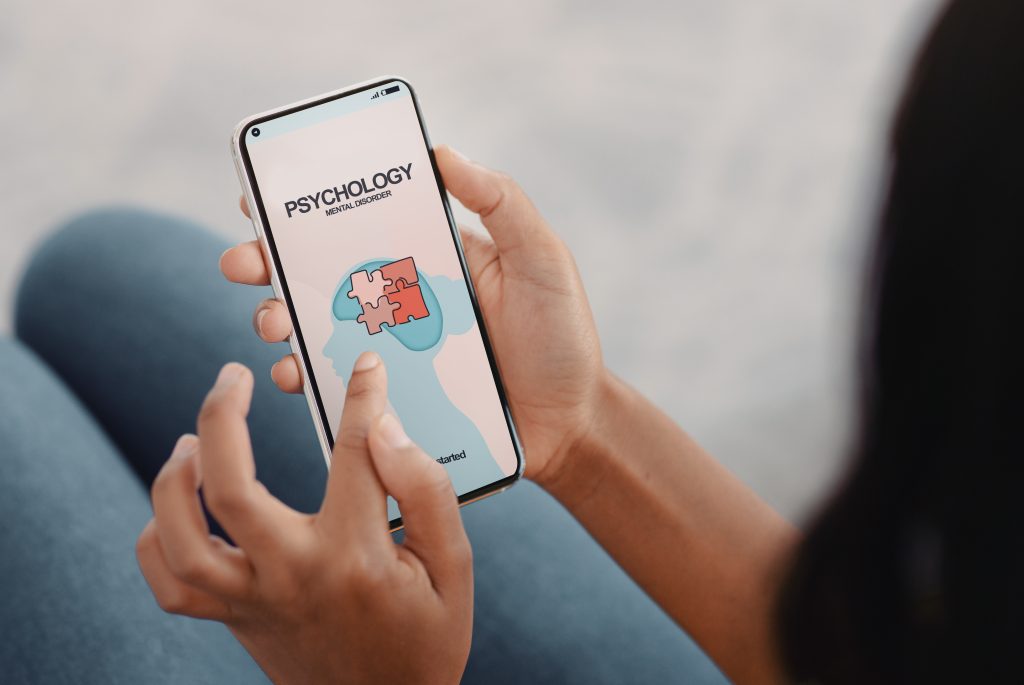Today’s college students use interactive apps to help them study. So, if you major in psychology, chances are that a psychology app can benefit your studies. These apps help college students learn specialized topics in the field. They also help psychology students learn while out of the classroom. But psychology apps do more than assist with academics. Mental health apps help students navigate mental health issues they might face while in school. Psychology students can use a psychology app to address mental health issues affecting themselves or a friend. Read on to find out which educational psychology apps you should use as a psychology student. 
Top 5 Apps Every Psychology Major Should Have
The five must-have school psychology apps have many things in common. They offer a great way to sharpen critical thinking skills. They help you commit important information to memory, allowing you to recall it during exam time. When it comes to learning psychology at the college level, apps can be a big help. These include apps for Android devices and other platforms. These apps for psychology students have all the features you need to keep up with the challenges of difficult psychology courses. They help you gain psychology mastery, making them great for psychology students.1. APA Journals
The American Psychological Association Journal publishes articles about emerging research in psychology. They offer a free app that you can install on your devices. It is a popular app among college students because you get convenient access to some of the most current literature in the field. The psychology app lets you browse article abstracts, learn psychology, and follow links from the summary page to an article. It’s the perfect piece of software for students who want to stay up to date while brushing up on research in their areas of interest. APA Journals is one of the best apps for psych majors. As a bonus, there are no in app purchases.2. EPPP Flash Cards
When it comes to learning psychology, EPPP Flash Cards help. EPPP Flash Cards provide convenient methods for committing information to memory. The EPPP Flash Card app comes with thousands of flashcards covering 12 core areas of psychological research. The learning app also has thousands of practice test questions to help students prepare for:- Classroom projects
- Essays
- Exams
- Clinical psychology
- Community psychology
- Social psychology
3. iCouch CBT
Every psychology student should be familiar with the important concept of cognitive behavioral therapy, or CBT. With iCouch CBT, students can analyze their cognitive state and change their behavior. They do this by focusing on the positive aspects of their thoughts while minimizing the negative aspects. The iCouch CBT app is great for students dealing with:- Anxiety
- Depression
- Stress
4. Intro to Psychology Mastery
First-year psychology students benefit from mental health apps like Intro to Psychology Mastery. The psychology app has 2,500 practice questions and answers that teach you about the discipline. You also get explanations of psychology topics. It is a great study app as it prepares you for quizzes and exams. Preparation comes from hundreds of flashcards you can use to learn terms and concepts. Flashcards are a proven technique for learning. This official app helps you memorize terms using a proven method. And there are few in-app purchases as a bonus.5. PsycExplorer
PsycExplorer is a popular app developed by The Psych Files. iTunes, Google Play, and the Microsoft Store distribute the psychology app. It allows users to browse a huge library of:- Psychology articles
- Psychology news
- Videos
5 Mental Health Apps for Psychology Students
College is full of stressors. Students face rigorous classes, learn how to live independently and on a budget, and face new social situations. Mental health apps are great for college students. They provide practical strategies for coping with stress. They address issues such as anxiety, depression, panic, and stress. The best mental health apps offer help to a broad audience. They might address a specific mental illness or provide help with generalized anxiety and stress. They identify triggers for negative thoughts and give you strategies that help you work through a challenge or situation. Read on to find out which apps mental health practitioners recommend college students use.1. Happify App
Happify is a mental health app that uses games and activities. It helps you take control of your thoughts and feelings. You take a short assessment that helps you determine your happiness score. Each week, you complete activities designed to improve your happiness. According to Happify, after a few weeks, you can start seeing improvement. The psychology app is great for college students who want a customizable means of measuring their emotions and feelings. Colorful graphs mark your improvement after you complete surveys that take a few minutes each week. To gain full access, you need a subscription. This will decrease the number of in-app purchases. But if you don’t want to commit, you can browse through articles on different topics. These include everything from clinical depression to obsessive compulsive disorder. You can even read about how to practice self care.2. Headspace App
One of the most well-known meditation apps in the world is Headspace. But there is more to this great app than meditation and mindfulness. With Headspace, college students watch videos that offer tips on how to focus when studying or how stay asleep. The meditation library is expansive and organized. And the app keeps track of where you left off from one day to the next. College students use Headspace to supplement traditional therapy and to overcome negative thoughts. The point is that there are many ways to use the app to benefit you while in school. If you want to work on overcoming anxiety or improve your focus, there are guided meditations designed to help. Your student discount on the premium version gets you access to:- Breathing exercises
- Self management for anxious feelings
- Sleep help
- Tips on how to cope with anxiety

3. MoodTools App
You can download MoodTools through Google Play or the Apple Store. It is one of the best free psychology apps out there. College students enjoy the free app because it is easy to get started. You first take a short questionnaire intended to give you a baseline for mood. From there, you can track your depression levels. You can also share them with a licensed psychologist in just a few minutes. The app’s top feature is a safety plan in case your depression levels become severe. The free version of this app provides a step-by-step plan listing warning signs, coping mechanisms, and how to get help. It also gives you reasons to live and provides contact names for your loved ones. If you need professional help, your safety plan will guide you.4. Sanvello App
Sanvello is one of the most widely-used psychology apps for college students. While not completely free, its premium features unlock through a low fee. But once you have access, you can explore hundreds of mental health activities. The app includes:- Advice on mental illnesses and how to search for professional practice therapy
- Guided meditation
- Heart rate monitor and tracking
- Tips for handling post traumatic stress disorder
5. What’s My M3 App
Due to the app’s anonymous features, What’s My M3 is a top psychology learning app for college students. To start, you submit free mental health assessments. These short assessments generate a personalized report and give you an M3 score. This score determines your mental health state. Based on your score, the app makes recommendations to address any issues you have. For example, if you show signs of bipolar disorder or have eating disorders, the app will recommend online therapy or guide you on your next step. Another benefit for such apps as What’s My M3 is that you can download your reports and share them with your mental health provider. They can use these reports to set up a cognitive behavioral therapy plan for you. No mental health app should be used as an exclusive tool. If you have bipolar disorder or any mental illness, it’s important to combine your tools with cognitive behavioral therapy.Other Mental Health Apps for Psychology Students
There are many more best apps for psychology students. Some help you learn psychology at your own pace, while others keep you up-to-date on mental illnesses. Some mental health apps provide awareness through surveys and graphs. They help you check your breathing, mood, and happiness factor. Other apps to consider include:- Better Sleep – Offers a white noise ambience for sleep, study, or yoga.
- Down Dog – Lets you customize your yoga practices outside the studio.
- PTSD Coach – Designed for users with PTSD. Provides education and stress management tips.
- Safety Plan – Provides a list of coping strategies and social supports for those in emotional distress.
- SAM App – Helps you understand and manage anxiety, depression, and loneliness.
Mental Health Tips for College Students
Your mental health as a college student is important, especially at a time when anxiety and depression rates are increasing at a fast rate. College students face unique struggles when it comes to mental health. A pandemic has made it difficult to meet new people and make new friends. Young adults have missed social events and important experiences. But there are ways to improve your mental health even during the most difficult times. Here are four mental health tips for college students.1. Be kind to yourself
It may not be the answer to every problem, but your mental health can improve when you are kind to yourself. Your thoughts, feelings, and beliefs can affect you physically. When your self-talk is kind, it can reassure you. It can also give you hope. It’s okay to be real with yourself, but it’s less helpful to be critical and self-judge.2. Create good habits
Establishing good habits, such as using a mental health app, can improve your mood and outlook. Good habits can also include:- A sleep routine
- Attending wellness activities at school
- Meeting up with a friend
- Physical activity
- Practicing healthy eating
3. Pay attention to yourself
Self-awareness sometimes starts by taking a deep breath and checking in with yourself. Slowing down and checking in with your mind and body helps you assess where you’re at in your mood and feelings. Different ways to pay attention to yourself include:- Deep breathing activities
- Going for a walk or a swim
- Listening to a favorite song
- Yoga
4. Reach out for help
Psychology students know better than anyone that reaching out for help is important when you feel hopeless, lonely, or stressed. Some colleges make it easier to reach out for help than others. Look at the resources your school offers. Do they have mental health services or virtual student support groups? Your school may have its own psychology app and you can download the free version. You can find some of the best mental health apps hosted by your college. They provide ways to reach out for help or connect with a licensed psychologist.By BDP Staff
Featured Programs
Related Resources:
5 Career Options with a Bachelor’s in Psychology
30 Best Bachelor’s in Psychology Degrees Online: Small Colleges
30 Great Degree Programs for Working Adults
Top 10 Best Majors for Indecisive Students
Ultimate Guide to Psychology and Counseling Degrees and Careers


